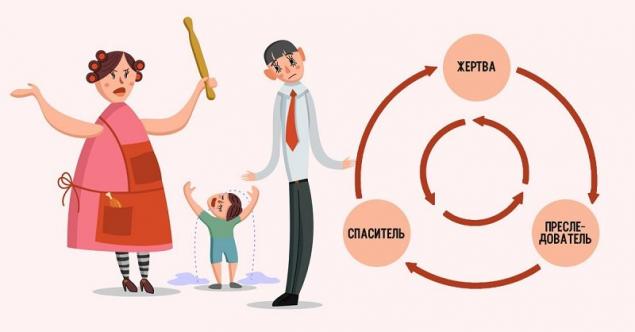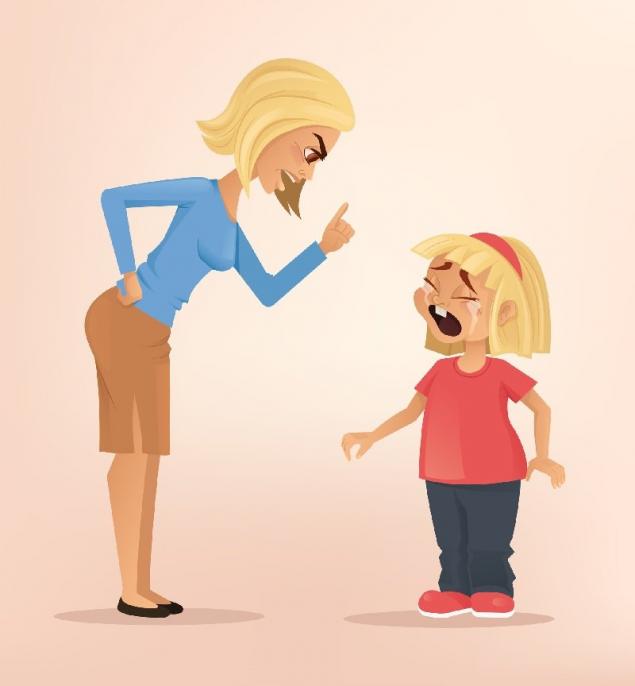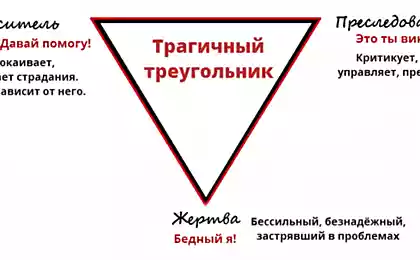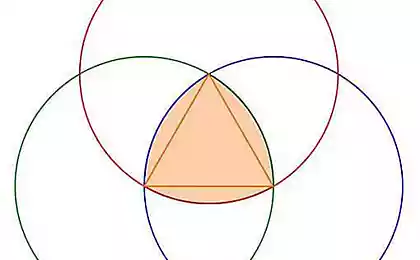296
How to Get Out of the Karpman Triangle
In order to solve a problem in a relationship, you must first understand it. The human world is such that people depend on each other, which is why they often resort to manipulation. You may not notice how you play on your feelings and emotions, or you do so to another person.
The 1968 Classic of Transactional Analysis Stephen Karpman He studied this situation and created his legendary Karpman triangle, which displays the most common model of relationships between people.

Editorial "Site" He'll tell you about the Karpman Triangle. And also how to fight. crisis And make them healthy. That is, those in which all parties feel happy, without a sense of duty, guilt or anything else. It can be both family and friendship.
In the Karpman Triangle, there are only 3 roles in humans: victim, persecutor (dictator) and savior. But it can be two participants, and three, and more. For example, husband, wife and children. Or husband, child, wife and mother-in-law. And everyone can play not one role, but change it from time to time. And now more details about each psychotype and how it destroys relationships.

DepositPhotos
The dictator does not give rest to the victim: forces and criticizes. The victim tries, suffers, gets tired and complains. The Savior comforts, advises, gives ears and a vest for tears. Participants periodically change roles.
Option: husband and wife are divorced, have a child. The mother (persecutor) blames the child for everything, allegedly for him she abandoned everything, sacrificed her youth. She demands the maximum return from him and saws for every little thing. The child (victim) proves that he has nothing to do with it, that others, including the mother herself, are to blame for everything, and seeks a savior, demonstrating his suffering and helplessness.

The father (savior) enters the game, tries to help the victim and protect her from the persecutor, but since this is only a game of salvation, he achieves nothing. For this, the victim accuses the savior, after which he becomes a victim of persecution, and the child in relation to him takes the role of persecutor. It should be noted that the mother here plays both the role of the victim when protecting the child from the outside world, and the role of the persecutor when accusing.

Another everyday option: a husband-dictator, a victim wife and a mother-in-law or friend in the role of a savior. Everything moves in a circle, everyone takes the position of the guilty, the persecutor, the intelligent savior.
Karpman himself says, “If there’s a game going on, if there’s a relationship, it benefits everyone in the system.” Otherwise, everything would just fall apart. If you are involved in something, you need it for some reason. Communication within this triangle is a very effective way of not taking responsibility for your actions and decisions, as well as receiving strong emotions and the right not to solve your problems.”

And he's right. A person always occupies a position that is beneficial to him, but not always consciously. To break this triangle once and for all, you need to realize your position in it. If you feel uncomfortable in a relationship, figure it out. Yes, it is in yourself, and do not look for the guilty, thereby turning once again into a victim and so on in a circle. Everyone has psychological traumas and illusions about relationships that prevent them from living normally.

DepositPhotos
The Karpman triangle is a reality, but only for stupid people who live with feelings, emotions and their own psychological traumas, have no clear goals and do not know how to control themselves, repeatedly finding themselves in the position of victim or persecutor. Work on yourself, do not focus your whole life only around some people, and especially do not think that someone owes you something.

DepositPhotos
Mutual understanding, communication, self-confidence and the environment are the key to human relations. It is important to be able to adequately assess the situation. Seeing someone trying to manipulate you and not sliding into the soap opera of an exhausting relationship.
Do you think the Karpman Triangle works in real life? Tell us in the comments whether you have been involved in such relationships between people and how you handled it. Share a useful article with friends on social networks!
The 1968 Classic of Transactional Analysis Stephen Karpman He studied this situation and created his legendary Karpman triangle, which displays the most common model of relationships between people.

Editorial "Site" He'll tell you about the Karpman Triangle. And also how to fight. crisis And make them healthy. That is, those in which all parties feel happy, without a sense of duty, guilt or anything else. It can be both family and friendship.
In the Karpman Triangle, there are only 3 roles in humans: victim, persecutor (dictator) and savior. But it can be two participants, and three, and more. For example, husband, wife and children. Or husband, child, wife and mother-in-law. And everyone can play not one role, but change it from time to time. And now more details about each psychotype and how it destroys relationships.

DepositPhotos
- Victim
He is always a dissatisfied person, according to whom everything is unjust. Suffering is its habitual state. The person in the victim position feels that nothing depends on him, he believes that in this situation he can not choose his behavior: “It’s because of them, and what could I do?” He's hurt, he's scared, he's ashamed. He's jealous and jealous. By the way, it is due to this type of people that the next two appear.
- Persecutor (dictator)
This is a psychotype that exists at the expense of the victim, and sometimes even grows out of it. He is tense, angry, and afraid. He cannot forget past problems and constantly predicts new troubles in the future. He controls and criticizes his neighbors, feels an unbearable burden of responsibility, and is very tired of it. His energy is at zero.
- Savior.
He feels pity for the victim and anger for the dictator. Such a person considers himself superior to others and the most necessary. He’s not really saving anyone because no one asked him to. It's just his illusion that he's trying to get into the heads of others. And the purpose of his actions and advice is self-affirmation, not real help. There is a category of people who are always aware of the problems of others and kind of violently participate in them, but without much sense.
The dictator does not give rest to the victim: forces and criticizes. The victim tries, suffers, gets tired and complains. The Savior comforts, advises, gives ears and a vest for tears. Participants periodically change roles.
Option: husband and wife are divorced, have a child. The mother (persecutor) blames the child for everything, allegedly for him she abandoned everything, sacrificed her youth. She demands the maximum return from him and saws for every little thing. The child (victim) proves that he has nothing to do with it, that others, including the mother herself, are to blame for everything, and seeks a savior, demonstrating his suffering and helplessness.

The father (savior) enters the game, tries to help the victim and protect her from the persecutor, but since this is only a game of salvation, he achieves nothing. For this, the victim accuses the savior, after which he becomes a victim of persecution, and the child in relation to him takes the role of persecutor. It should be noted that the mother here plays both the role of the victim when protecting the child from the outside world, and the role of the persecutor when accusing.

Another everyday option: a husband-dictator, a victim wife and a mother-in-law or friend in the role of a savior. Everything moves in a circle, everyone takes the position of the guilty, the persecutor, the intelligent savior.
Karpman himself says, “If there’s a game going on, if there’s a relationship, it benefits everyone in the system.” Otherwise, everything would just fall apart. If you are involved in something, you need it for some reason. Communication within this triangle is a very effective way of not taking responsibility for your actions and decisions, as well as receiving strong emotions and the right not to solve your problems.”

And he's right. A person always occupies a position that is beneficial to him, but not always consciously. To break this triangle once and for all, you need to realize your position in it. If you feel uncomfortable in a relationship, figure it out. Yes, it is in yourself, and do not look for the guilty, thereby turning once again into a victim and so on in a circle. Everyone has psychological traumas and illusions about relationships that prevent them from living normally.

DepositPhotos
The Karpman triangle is a reality, but only for stupid people who live with feelings, emotions and their own psychological traumas, have no clear goals and do not know how to control themselves, repeatedly finding themselves in the position of victim or persecutor. Work on yourself, do not focus your whole life only around some people, and especially do not think that someone owes you something.

DepositPhotos
Mutual understanding, communication, self-confidence and the environment are the key to human relations. It is important to be able to adequately assess the situation. Seeing someone trying to manipulate you and not sliding into the soap opera of an exhausting relationship.
Do you think the Karpman Triangle works in real life? Tell us in the comments whether you have been involved in such relationships between people and how you handled it. Share a useful article with friends on social networks!


























